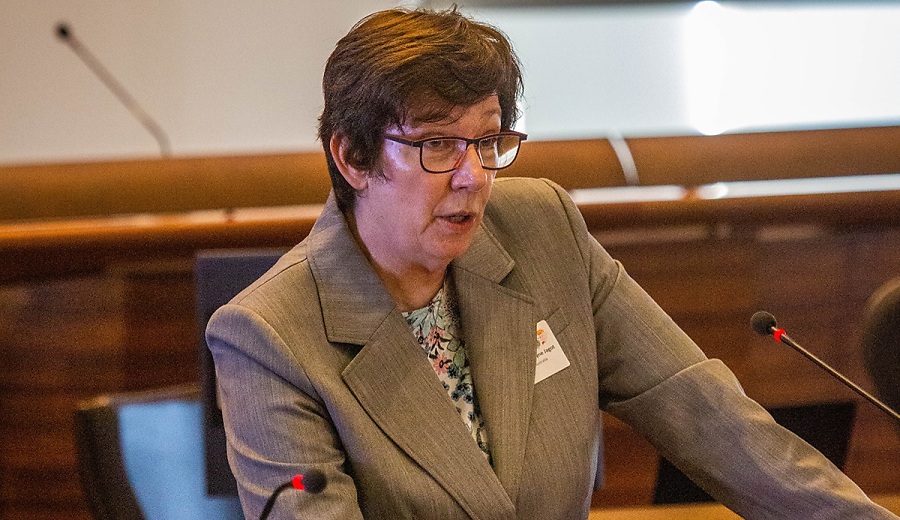Jagot J: ‘Essential faith we have in the law might be threatened’ if working conditions aren’t improved
Delivering introductory remarks at last week’s Minds Count Annual Lecture, the Honourable Jayne Jagot — Australia’s newest High Court judge — spoke about the “obligation to do better” with regard to the health and wellbeing of all legal professionals.

The 2022 Minds Count Annual Lecture — hosted last Thursday (27 October), with former King & Wood Mallesons (KWM) chief executive partner Berkeley Cox and KWM solicitor Margaret Cai delivering the keynote address. You can read about that address here.
Over three decades in practice, Her Honour has seen “radical changes” in attitudes to ensuring people’s mental health is not harmed in legal workplaces.
“In my recent swearing-in speech [at the High Court], I identified the courtroom itself as another workplace, one in which the substance and procedures of the late being administered are based on recognition and acceptance of the inviolable dignity of each person, entitled to respect and care by reason of our shared humanity,” Jagot J reflected.
“I believe it will become commonplace in the future for those administering justice in all its forms to recognise the process as involving workplaces in which all involved are entitled to care and respect, whilst preserving the traditions of robust debate and testing, which are hallmarks of our common law adversarial system and inquisitorial processes.”
Her Honour also anticipates, the remarks continued, that it will also become commonplace for those administering justice in all its forms to recognise that actions in that workplace will affect people in other workplaces.
“I believe that we will come to recognise that the law, in particular, should be a trailblazer in setting standards and establishing practices [that] embody the foundations of our legal system, the dignity of each person and the requirement for shared respect inherent in the social compact into which we enter with others and the state,” Jagot J said.
“If a system founded on those values is a laggard in setting standards and establishing practices [that] enable those values to be lived day-to-day, then it will not only rightly be scrutinised and criticised, but the essential faith we have in the law as a manifestation of those values might be threatened.
“For my part, I see plenty of evidence of that increasing scrutiny and criticism in contemporary discourse.
“We have an obligation to do better.”
Note: The editor of this publication sits on the board of directors for the Minds Count Foundation.

Jerome Doraisamy is the managing editor of professional services (including Lawyers Weekly, HR Leader, Accountants Daily, and Accounting Times). He is also the author of The Wellness Doctrines book series, an admitted solicitor in New South Wales, and a board director of the Minds Count Foundation.
You can email Jerome at: